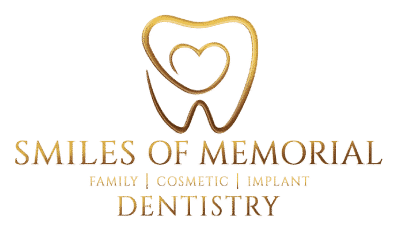Dental emergencies can be stressful and dangerous for your oral health. Ignoring such problems for a long time can make you suffer long-term damage. They might also require complicated and expensive treatments. Dental issues like chipped or cracked teeth, toothaches, tooth loss, or discomfort from a crown may be considered severe conditions that necessitate a quick response. In this blog, we will discuss essential details related to dental emergencies. Go through the sections below to gain a better understanding of the topic.
Contents
What Is A Dental Emergency?
People often fail to understand that not every dental problem should be considered a dental emergency. Asking yourself a few simple questions can help determine if you are facing a dental emergency. They are:
- Are you suffering from immense pain? This is a very prominent sign of a dental emergency.
- Have you lost one or multiple teeth? Acting immediately can help to save the tooth.
- Do you have loose teeth? You need to know that a loose tooth, even without pain, is a serious problem. It is not healthy for adults to have loose teeth.
- Is there an infection? Since an abscess or significant oral infection can be fatal, treatment should not be delayed at any cost.
- Are you bleeding from the mouth? Traces of bleeding is a sign of a dental emergency.
Any dental issue requiring urgent care to stop bleeding, lessen excruciating pain, or save a tooth is generally seen as an emergency. This also holds true for serious infections that pose a risk to life.
Dental Emergencies That Need Immediate Attention
Emergency dental care is required every time a tooth is harmed or dislodged from the gums. We have provided the four common dental emergencies when you should always seek immediate medical assistance.
1. Knocked-Out Tooth
A tooth that has been knocked out can be painful and must be treated immediately. It is always advisable not to touch the tooth’s root. Put the tooth in a glass of milk or water, apply a cold compress on your mouth, and head to a dentist offering emergency dental care as soon as you can.
2. Chipped Or Cracked Tooth
Although a crack or chip might appear to be not very serious, there can be hidden damage deeper in the tooth. Additionally, there can be damage to the adjacent teeth. Make an appointment with a dentist on the same day to determine what dental procedures are required to repair the tooth.
3. Abscessed Tooth
An abscessed tooth is caused when a pus pocket forms at the root of a tooth. It can be a life-threatening situation due to the potential for the infection to spread to other body parts. This is a serious infection that requires an immediate visit to a dental office offering premium emergency care.
4. Orthodontic Emergencies
You can usually wait until the next available appointment to visit your orthodontist if a bracket is damaged or loose. However, you should visit your dentist immediately if the condition worsens and pieces of the orthodontic equipment start to cause open wounds, extensive bleeding, or serious irritation.
What Are Tips To Avoid Dental Emergencies?
Adopting a few measures can help avoid the chances of suffering from dental emergencies.
1. You Should Practice An Oral Hygiene Routine
Brushing and flossing regularly for the overall well-being of your teeth and gums is essential. Bacteria tend to accumulate quickly in food debris which can be the reason for gum disease or tooth decay. Infections can harm the gums and teeth and may necessitate a trip to the dental office offering emergency dental care.
2. Use A Mouthguard
Everyone can benefit from mouthguards, especially if you participate in sports. Mouth guards protect your teeth by absorbing hard impacts to the mouth. Mouthguards are recommended when engaging in contact sports and leisure activities where the likelihood of falling and taking a hard blow is higher.
3. Watch What You Eat
Most likely, you were taught as a child that candy, crackers, and starchy, sugary foods are terrible for your teeth. Drinks, including coffee, fruit juice, soda, and alcohol, should all be avoided or consumed in moderation. Sticky foods often get stuck between teeth and are challenging to remove. If you bite down on tough, crunchy foods too forcefully, it might harm your teeth and result in a dental emergency. Be careful to avoid any food that demands too much force for chewing.
4. Go For Routine Dental Checkups
You should visit your dentist at least twice yearly for professional cleaning sessions and dental exams. The dentist is trained to remove stubborn plaque deposits that cannot be cleaned by routine brushing. You risk suffering from cavities and gum disease if you don’t visit the dentist regularly. The dentist will perform preventive care during your appointment and carefully evaluate your oral cavity for any indications of dental problems.
We hope you now know what a dental emergency is and when to consult a dentist. Always remember that panicking during such a situation can make things worse. Try to calm your mind and visit a dentist near you as soon as possible.





